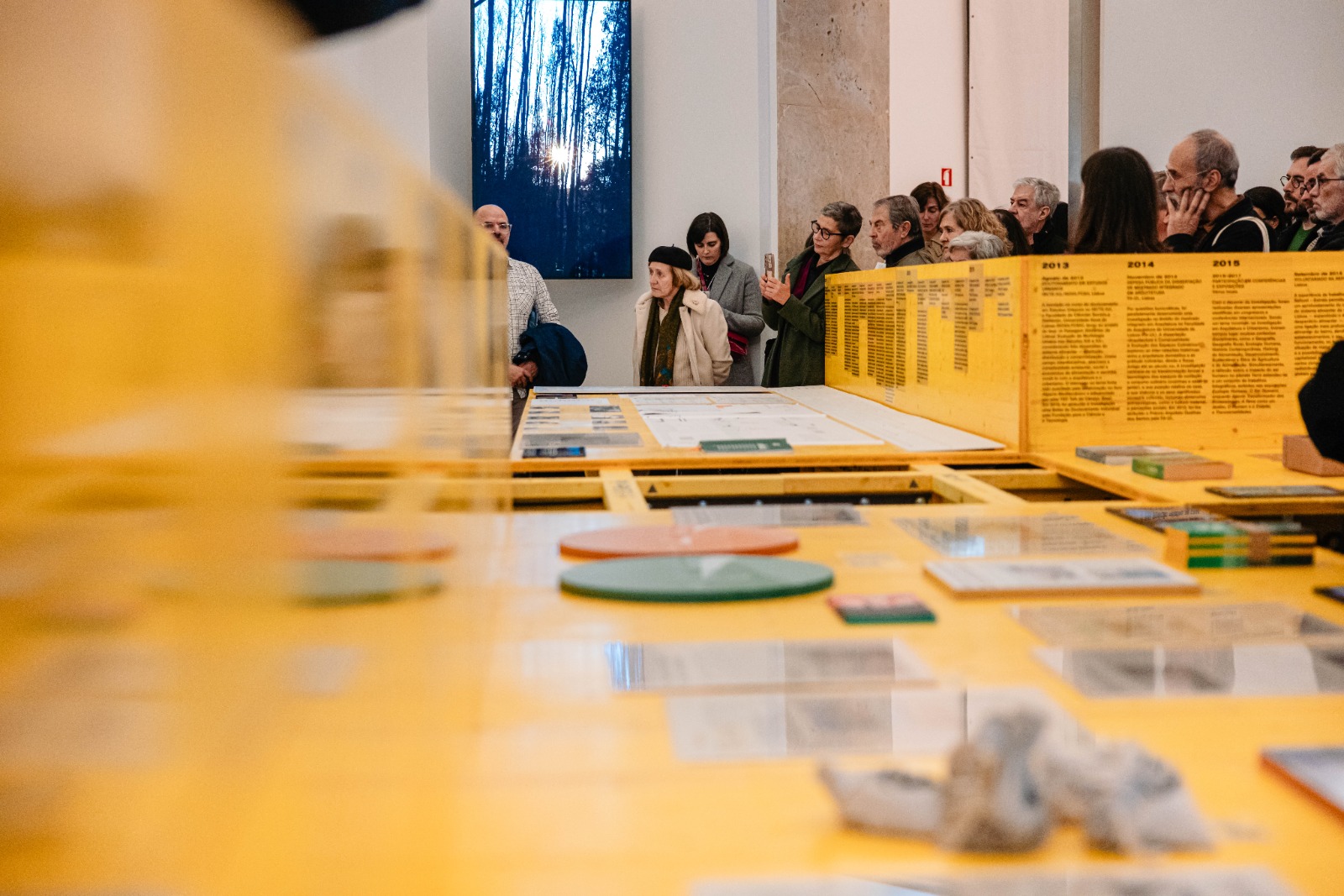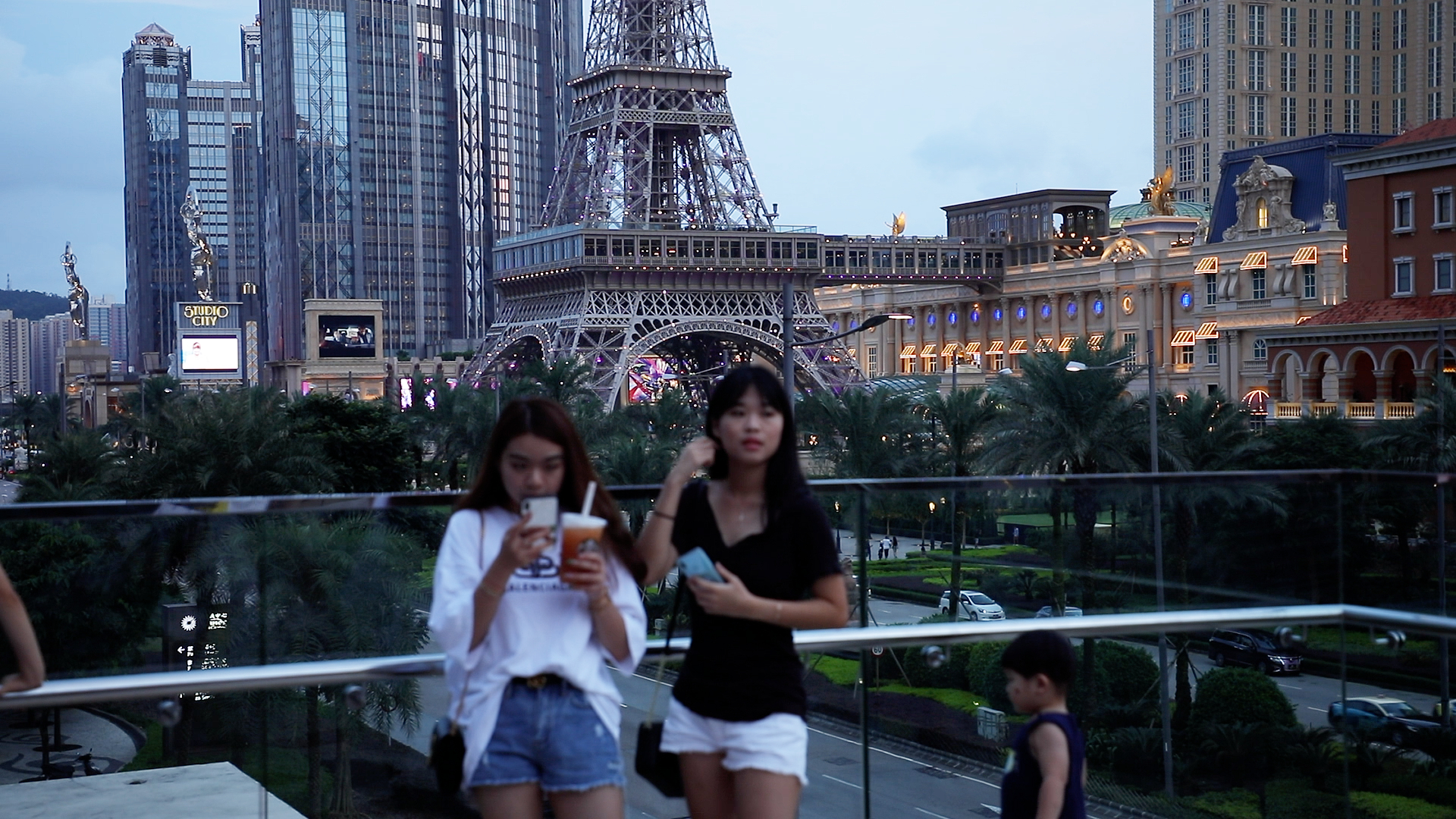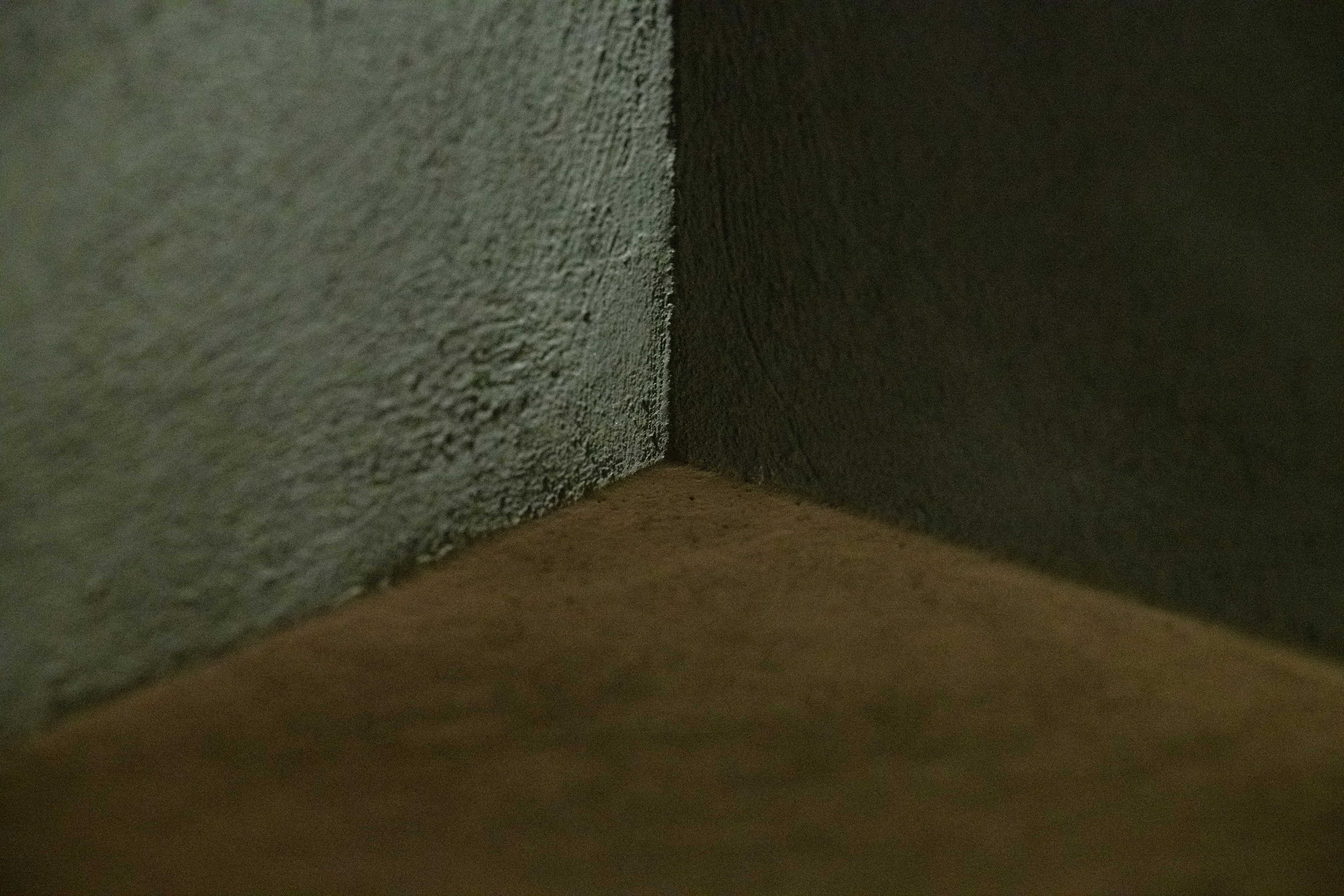Liberdade
Pedro Pousada
2014
até
24
April 2014
Círculo Sede

Registration open
24
April 2014
to
24
April 2014
Círculo Sede
“It's harder to honor the memory of the anonymous, the nameless, than the memory of the famous.”
Walter Benjamin
Freedom
Street intervention on the façade of the Círculo Sede of the Círculo de Artes Plásticas de Coimbra by artist Pedro Pousada, promoted by the Colégio das Artes da Universidade de Coimbra.
Production of a large panel that will cover the entire façade, taking the idea of “Freedom” as a starting point and slogan, taking on the urban dimension of the intervention.
The inauguration, taking place on the evening of April 24, will evoke Freedom as a desire on the threshold of fulfillment.
The Memory of Anonymous
“What cost me the most about my clandestine life was separating myself from my little son. He was very young when I left him with my in-laws and when I saw him again he was a grown man, he never forgave me, we get along badly, he with me, but now I have my grandson.”
“It was already evening, the printing machines had run out, we were packing everything in bundles, it was a MUD advertisement, I left, I heard footsteps, I ran so hard that I seemed to have won but I stumbled and when I got up I had a gun pointed at my head. I was arrested, they beat me a lot, they accused me of being a communist, and I, who didn't even know what that was, decided that same day to know what a communist was. And now here I am at the 31 bus stop, the bus doesn't arrive, it's always the same thing... And these people don't know that I once fought for them, when they weren't born and I didn't know what the fight was until they threatened to kill me for carrying some papers, I can't remember if I ever read the manifesto, but I was against hunger, the misery in which we lived.”
“I was born in 1968, my mother died when I was four years old, I had to get by, I went to live with my grandmother, in Madeira, she lived in a village, everything was poor, there was no electricity, she drank the water that came from the levadas, she had a cow and the milk she gave were our livelihood, four short stories, she had suffered a stroke and didn't move one of her legs, she sat very straight on the cow and the moo, I was the one who brought the milk, at four in the morning, in the middle of In those ways, I lived on that island for sixteen years, and it was that cow that paid for my studies Until fourth class and supported us, now I'm here, in this workshop, changing tires, I earned five hundred euros and the boss has already warned that there will be no increases.”
“I started working at the age of six, picking olives or harvesting in the field, that was fine. I left the house it was still night, and we would travel many kilometers until we reached the place where we worked. I was a little girl, I was left behind the elders to breathe, we put flour sacks around our clothes so that the humidity of the field would not get drenched but even then we were all wet, feet soaked, it was a cold that embittered us. At night they put mustard compresses on us to clean our lungs so we wouldn't get pneumonia, and so many got it. We would climb the trees and pull the olives and our hands were full of wounds, of raw flesh, it hurt so much and yet we had to continue; we were hungry and our parents shamefully told us to go ask for some bread and a measure of olive oil from the bosses, the barns were full, but the supervisors said that everything was closed and that the bosses were in Estoril, and they couldn't open without authorization, my father arranged for us to do the fourth class, we would wear adult clothes, used things and there we went, to walk around wearing mine The father sacrificed himself and for years he wore the same shoes, to hold on to the sole he wrapped wires that he arranged. For many years he wore those shoes, I had a little brother who died, it was an accident, my mother was whitewashing and he drank from the jar containing the lime, he burned everything inside, he thought it was milk, it was hunger, I have a daughter who had been involved in drugs but now she's straightened up, it was hard. We want to give our children what we didn't have and then everything seems to go wrong.”
“When they tell me that the other time was good, I mean, what time? I only saw misery, people suffered from hunger and had to shut up, and then if the grocery store in the village started to be disheartened with the price of bread, they were immediately accused by the owner of the sale who was a pain in the ass, it was just salamaleques for the owners of the land and for the poor it was just contempt; I had to get out of there, I went to France, and I returned because of my children, so that they wouldn't grow up in a country other than mine, but I'm sorry, that changed little, they went out there, to France, and I returned because of my children, so that they wouldn't grow up in a country other than mine, but I'm sorry, that changed little, they went out there, to France, and I returned because of my children, so that they wouldn't grow up in a country other than mine, but I'm sorry that little changed, they went out there and went back to France because of my children, so that they wouldn't grow up in a country other than mine. Cut the cards; do you know that the first time I wore shoes was when I arrived in France? It was like falling on another planet, life was different in everything, the way people treated us, the work, the culture, the food. I was finally happy there.”
“When the war ended we went downhill, it was a contagious joy, there were flags of allied countries other than Russia, and around and a half someone shouted “Long live Rossio!” Then everyone cheered on Rossio, and the police would immediately start to disperse us.”
“I have twelve brothers, we eat six at a time from a large pot of spaghetti, at six I get up to work in that sawmill next to the public sink, I varnish the chairs with a paint gun, at nine o'clock I unload it to the high school, I'm doing the tenth, at six I return and I stay until ten at work, when I get home I still check out the books but it's difficult, what counts is that I have a good memory and I listen to the teachers, I want to take an accounting course, now that we're in Europe it seems like the future.”
“When April 25th was, I was standing on the side of the Alameda, painting an apartment, I had been unemployed for a long time, they didn't give me a job because I was a communist, and a friend got me a job, I listened to the armored cars, I sat on the porch, they shouted that it was the revolution, that Caetano was stuck in Carmo, I couldn't believe it, I went down running, I joined the boys and the girls, it was the happiest moment of my life, this is the day I arrived in the Soviet Union.”
“I was expelled from letters in Lisbon for subversive activities, I had to finish the course in Coimbra, they called me into the troop, I was placed in a disciplinary battalion, they sent me to Guinea, it was part of the logistics that supported the guys who were in the most isolated bases, I witnessed cases of madness, months in that place, the desperation was immense, I saw giants crying like children.”
“Once the PAIGC ambushed us, do you know what? Wasps, they put a hidden nest in a tree where they knew we were going to stop to get shade, they were shaken up with change and when they caught us there, all those people making noise, the smell, I don't know, shook over us, I got sick from so many stings, I still shudder today when I remember. They didn't spend a bullet and set us up. At that time I already had a wife and son, we were newsagents, we were very hungry, I still thought about taking the leap to France, but I was afraid, I wish I hadn't been.”
“Do you remember that movie in which Portuguese troops cross Luanda Bay, all profiled? I was there, we had just gotten off the boat, we were exhausted, my men had spent the trip vomiting, they had never boarded, because the mother's children still forced us to cover all those kilometers. It was a scam and in the first week I immediately lost five of my men, they were riding in the front jeep and stepping on a mine, it was close to Luanda, two died right there and the others were left in disarray; and days later we had an ambush, as many others were killed, I began to do the math, the defect of being a bank employee, and I came to the conclusion that it would not reach the end of the month. Do you know what African grasshoppers call the grasshopper during the bite? Flying shrimp. Funny, isn't it? So many things I could tell her. I've had enough of killing, what do you think? If you were there wouldn't you do the same? Do you think I wanted to go to Angola, did they ask me? Do you know the disgust that was, so in the North when we arrived it was just dead people, everything, men, women and children, the creation itself had cut them to pieces, and the retaliation was enormous. I remember on a farm the Carterpillars pushing piles and piles of dead Africans into ditches, if they killed many, we broke records, and it wasn't just the troop, it was the farmers, the people there, they wouldn't let a black person escape, have you ever thought about that? I, who came from Lisbon, had never hurt a fly and now I was there killing people like chestnuts. You can see it was like those sacks over there, the bodies reached the roof of this warehouse, and there were still alive, they moaned and said, oh white help me, and we would say, where are you from here? She beckons, and they, poor people moved their fingers, and we pumba, one shot and they stayed there, like the others; a time came that I no longer wanted to know, once I arrived at the base so exhausted that I fell asleep next to the corpses of my comrades. And that dense forest that seemed like night and was still going high in the day. Just green in every way, in ten steps someone no longer knew how to go back... and I was from Lisbon.”
“The first time my brother was arrested in Régua, in 1936, he was already an engineer, the war had started in Spain and he made a speech at the café against the dictatorship, against the coup plotters and that it was necessary to help the Republic. He spoke of injustice, of the lack of freedom, it seems that people applauded and he was taken on his shoulders but then he was arrested; once Pide came to pick him up here at this house, he was up there in the tangerine tank, with his daughters cooling off from the heat, Pide somehow There in front of them, they took us to Porto and it was incommunicado for a long time, we didn't know if he was alive or dead. They beat him a lot, I know they hit him, I saw it in his face. He didn't get to see April 25th, he died young, he got cancer, it was from suffering, from humiliation; how he would have liked to live those times...”
“When I was a little girl, I remember seeing the GNR escorting a man who was caught picking acorns on a piece of land in the morgado off the ground, and they forced him to carry his bag to the gas station; it seems that when he arrived there, he was still beaten. Acorns, have you seen? To fatten up a piglet with which he ruled his life and that of his...”
Automatic translation
Artists
Curatorship
Exhibition Views
Intervenção na fachada do Círculo Sede.
Video
Location and schedule
Location
Localização
Educational Program
Associated activities
Exhibition room sheet
Acknowledgements
Documentation Center 25 de Abril
Notícias Associadas
More information
Exhibit as part of XVI Cultural Week of Universidade de Coimbra
Technical sheet
Open technical sheet
Organization
Círculo de Artes Plásticas de Coimbra
Colégio das Artes
Assembly
Círculo de Artes Plásticas
Colégio das Artes
Secretarial Work
Ivone Antunes
Art Direction
Artur Rebelo
Lizá Ramalho
João Bicker
Graphic Design
unit-lab, by
Francisco Pires and Marisa Leiria

















